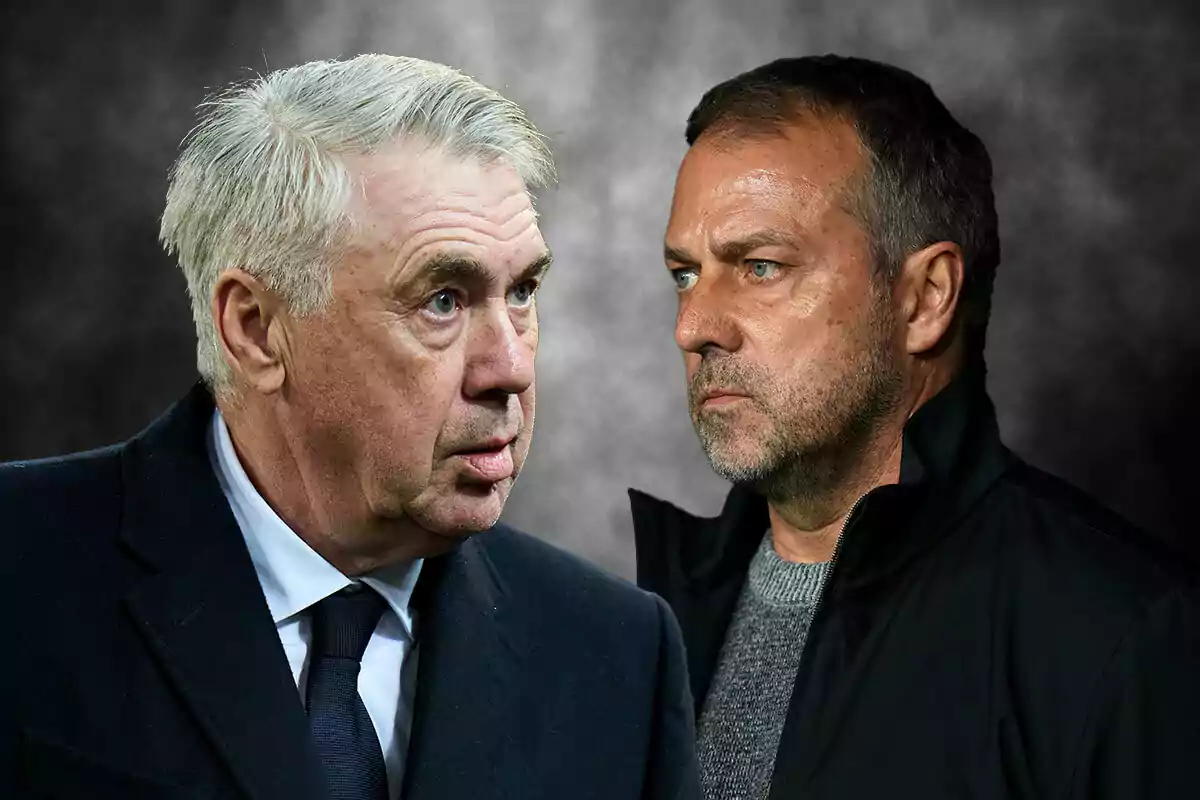Sport
Top 12 Best Coaches in Football Right Now (2025)

The 2024–25 football season has showcased the brilliance, adaptability, and relentless pressure faced by modern managers. From tactical revolutions to crisis management, today’s coaches must master far more than formations and substitutions. This ranking evaluates the top 12 managers based on their current-season impact, tactical innovation, and ability to deliver results under intense scrutiny.
12. Pep Guardiola (Manchester City)
Pep Guardiola’s Manchester City, once an unstoppable force, finds itself in an unfamiliar fifth place in the Premier League. A Champions League group-stage exit—their first in over a decade—has raised questions about the team’s direction. Guardiola’s possession-based philosophy remains influential, but struggles to integrate new signings and manage aging stars like Kevin De Bruyne have exposed vulnerabilities. Despite this, his legacy as a tactical pioneer keeps him in the conversation.
Diego Simeone’s Atlético Madrid remains a bastion of grit and defensive discipline. A controversial Champions League exit to Real Madrid on penalties highlighted their never-say-die attitude, while a top-four La Liga battle underscores their consistency. Simeone’s ability to compete with financial heavyweights using limited resources cements his status as one of the game’s great motivators.
10. Nuno Espírito Santo (Nottingham Forest)
Nuno Espírito Santo has orchestrated a fairytale rise at Nottingham Forest, propelling them to third in the Premier League. A historic 7-0 demolition of Brighton showcased his counterattacking mastery, while an FA Cup quarterfinal run proves their growing ambition. Without European distractions, Nuno’s focus on domestic success has turned Forest into genuine top-four contenders.
9. Mikel Arteta (Arsenal)
Mikel Arteta’s Arsenal has defied expectations, sitting second in the Premier League and reaching the Champions League quarterfinals despite injuries to key attackers. His tactical shift to a 3-5-2 system and trust in academy products like Ethan Nwaneri highlight his evolution from Pep disciple to innovative leader. Arteta’s blend of pragmatism and idealism keeps Arsenal in the title race.
8. Simone Inzaghi (Inter Milan)
Simone Inzaghi’s Inter Milan leads Serie A and remains a Champions League dark horse. His 3-5-2 system, powered by Lautaro Martínez’s 30-goal campaign, balances defensive solidity with attacking flair. Inzaghi’s mastery of set-pieces and squad rotation—reaching the Coppa Italia quarterfinals with backups—proves his tactical depth.
7. Antonio Conte (Napoli)
Antonio Conte has resurrected Napoli, transforming them into Serie A leaders after a chaotic 2023–24 season. Sacrificing European football to focus domestically, Conte’s 4-2-3-1 setup has reignited Victor Osimhen (25 goals) and imposed a relentless physical style. His bold decision to bench captain Giovanni Di Lorenzo for “lack of intensity” epitomizes his no-nonsense approach.
6. Xabi Alonso (Bayer Leverkusen)
Xabi Alonso’s Bayer Leverkusen sits third in the Bundesliga and is a DFB-Pokal semifinalist, blending youth and tactical innovation. His hybrid 3-4-3 system maximizes Florian Wirtz’s creativity, while a Champions League group-stage win over PSG announced Leverkusen as a rising force. Alonso’s cerebral approach has drawn comparisons to Pep Guardiola.
5. Vincent Kompany (Bayern Munich)
Vincent Kompany’s gamble at Bayern Munich is paying off. Leading the Bundesliga with a possession-heavy “Positional Play 2.0” style, Kompany has silenced critics who doubted his credentials. A Champions League quarterfinal clash with Barcelona will test his tactical mettle, but his 80% league win rate suggests Bayern’s dominance is far from over.
4. Luis Enrique (Paris Saint-Germain)
Luis Enrique has navigated PSG’s pressure-cooker environment to lead Ligue 1 and reach the Champions League quarterfinals. His decision to grant Kylian Mbappé a free role and trust 18-year-old Warren Zaïre-Emery in midfield reflects boldness. A penalty-shootout win over Liverpool in Europe showcased PSG’s newfound resilience under his guidance.
3. Arne Slot (Liverpool)
Arne Slot has seamlessly transitioned into Jurgen Klopp’s shoes, with Liverpool leading the Premier League and reaching the Carabao Cup final. His high-pressing 4-3-3 system has unearthed gems like Ben Doak (19), though a Champions League exit to PSG on penalties remains a bitter pill. Slot’s focus on youth and energy signals a bright future at Anfield.
2. Carlo Ancelotti (Real Madrid)
Carlo Ancelotti’s Real Madrid is second in La Liga and a Champions League quarterfinalist, thriving on his calm leadership and tactical flexibility. Jude Bellingham’s 15+ assists and goalkeeper Andriy Lunin’s heroics exemplify Ancelotti’s knack for maximizing talent. A Copa del Rey semifinal against Girona could add another trophy to his storied career.
1. Hansi Flick (Barcelona)
Hansi Flick tops the list after revitalizing Barcelona. Leading La Liga and unbeaten in 17 games, his 4-2-3-1 system has rejuvenated Robert Lewandowski (28 goals) and unleashed 16-year-old sensation Lamine Yamal. A 3-1 Champions League quarterfinal win over Benfica underscores Barça’s return to prominence under Flick’s meticulous planning.
Conclusion: The Hallmarks of Modern Greatness
The 2024–25 season underscores that adaptability, man-management, and tactical ingenuity define elite coaching. From Hansi Flick’s Barcelona revival to Nuno Espírito Santo’s Premier League Cinderella story, these managers prove that success is no longer just about trophies—it’s about reshaping teams, cultures, and the game itself.

 Sport11 months ago
Sport11 months ago“I’m not trying to criticize Ancelotti, but I’m not happy with him for benching that player”: Bellingham Expresses Frustration Over Ancelotti’s Tactical Decision

 Sport11 months ago
Sport11 months agoBREAKING: Manchester City vs Liverpool Clash Cancelled! Title Race Takes a Twist

 Sport11 months ago
Sport11 months agoArsenal Poised for January Swoop on €70 Million Star Dusan Vlahovic

 Sport11 months ago
Sport11 months agoWHAT ON GOD’S GREEN EARTH DID WE JUST SEE?!

 Sport11 months ago
Sport11 months agoReal Madrid: Carlo Ancelotti’s Surprising Revelations About an Unexpected Quality of Vinicius

 Sport11 months ago
Sport11 months agoBREAKING: Arsenal’s Champions League Quarterfinal Opponent Revealed After Monaco’s Dramatic Win – Tough Challenges Await Arteta’s Men

 Sport11 months ago
Sport11 months agoChelsea Players Facing Suspension as Yellow Cards Mount

 Sport11 months ago
Sport11 months agoKey Arsenal Player Set for Return as Gunners Face Struggling Everton
















